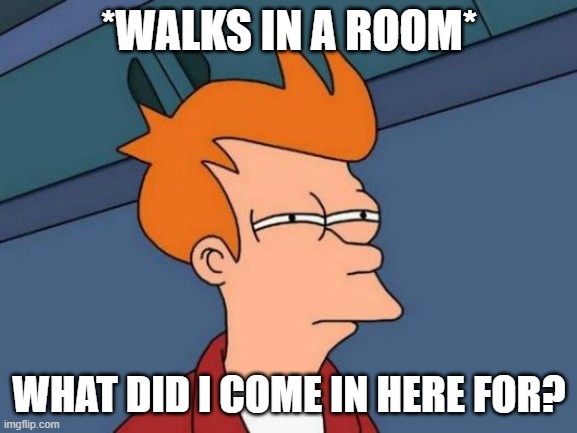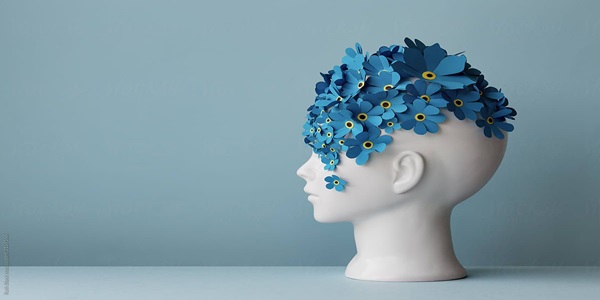There’s a time for all of us when we are trying to start a new habit, but we can’t seem to consistently remember to do it. It’s in these times of forgetting that we feel the sting of failure and the rising urge to give up because “it’s just not happening.” These new tasks are easy to forget because they haven’t been performed enough to become automatic. This means that they require conscious effort to happen until they do become automatic. Don’t be hard on yourself because it’s impossible to sustain a consistent conscious effort all the time. If it were, we wouldn’t need habits at all!
When it comes time to put your new action steps in place, you’ll need ways to remember to do them and overcome the obstacle of forgetting (most of the time). This article is here to help you overcome forgetting tasks that you are just starting to learn. There’s a fascinating aspect of memory that can help us remember these tasks and build habits: prospective memory.
Prospective memory
Prospective memory is the ability to remember to perform intended actions in the future. Unlike retrospective memory, which involves recalling past events or information, prospective memory is all about remembering to do something at a specific time or in a specific situation. It’s what prompts you to take your medication at the right time, attend a scheduled meeting, or remember to buy a birthday gift for a friend.
Memory Cues
One of the most effective strategies for enhancing prospective memory is the use of memory cues. These cues serve as reminders that prompt us to carry out intended actions at the appropriate moment. Memory cues can take many forms, ranging from simple visual cues to elaborate mnemonic devices. Here are some practical ways to harness the power of memory cues in your daily life:
1. Visual Reminders: Place objects in prominent locations to serve as visual reminders. For example, if you need to remember to take your umbrella with you in the morning, leave it by the front door where you can’t miss it. Similarly, if you have a document to review, place it on top of your keyboard or mouse, so you see it as soon as you sit down at your desk. Visual reminders are only good if they show up at the right time and place. Make sure you have time to read the mail if you put it on the table to check when you get home. Too many visual cues can cause clutter; nothing can be seen in the visual noise.
2. Alarms and Timers: Use alarms and timers on your smartphone or other devices to remind you of important tasks or appointments. Set alarms for specific times or use countdown timers to alert you when it’s time to switch tasks.
3. Associative Cues: Link the intended action to a specific cue or event. For example, if you need to remember to water the plants, associate it with your morning coffee routine. Every time you make your coffee, let it remind you to water the plants as well.
Try this: Every time you need to do a task, make a declarative sentence including WHERE you will do the task.
Ex: “I will take my medication next time I go into the kitchen.”
Or
“I will start my 15-minute meditation when I go to bed.”
This works because the environment is the strongest trigger for recollecting a memory!
4. Mnemonic Devices: Create mnemonic devices or mental associations to help you remember tasks. For instance, if you need to remember to call a colleague, associate their name with a visual image or a rhyme to help trigger your memory. Ex. “Go to the gym at 8 PM Monday after work to have a fun day.” Or” I’m going to research the FODMAP Diet at 4 PM so I don’t have to feel IBS pain again!”
5. Checklists and Planners: This is an obvious one, but it is here as a reminder to those who have gone their whole lives avoiding lists and planners. Maintain checklists or use a planner to keep track of tasks and deadlines. Write down your to-do list for the day or week, and refer back to it regularly to ensure nothing slips through the cracks.
By incorporating these memory cues into your daily routine, you can enhance your prospective memory and become more efficient at remembering to do things when they need to be done and overcome forgetting tasks. However, it’s important to note that prospective memory, like any cognitive ability, can be influenced by various factors such as stress, fatigue, and age. Therefore, it’s essential to practice good self-care habits, such as getting enough sleep and managing stress, to optimize your memory function.
What It All Means
Prospective memory plays a crucial role in our ability to navigate the demands of daily life. By leveraging memory cues and employing effective strategies, we can enhance our prospective memory and ensure that we stay on top of our responsibilities and commitments. So, the next time you find yourself struggling to overcome forgetting tasks, try using a memory cue to jog your memory—it might just make all the difference.
If you have not already done so, schedule a free consultation with me to put these memory techniques to good use.



